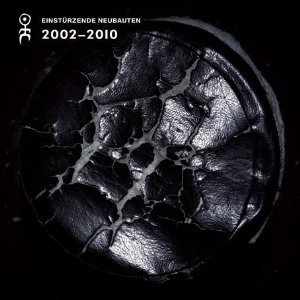There are several types of Neubauten fan. One strand wishes the band stayed back in the dark, netherworld of 1980s Berlin. They curse the fact that they have evolved musically, and become masters of light and shade and the power of silence, wishing that at some point a few decades back Blixa and co had kept themselves hidden away in the cavity of the concrete flyover in which they made their first recordings.
Yet there is another that dreams of an alternative reality, in which Neubauten enjoy their rightful position as a kind of Central European Beatles, whose deconstructed odes are enjoyed by millions. Look at it one way and it’s all there: Bargeld’s trademark high-pitched scream that has remained a feature of the band’s 30-year output, appearing here on numerous tracks, is his version of McCartney’s mop-shaking ‘Wooooooh’. The German group’s dedication to the studio eclipses that of the Beatles oft-lauded retreat into a cocoon of creation in 1966 that has become tantamount to a Newtonian Moment Of Genius, albeit within the excitable confines of music myth.
Neubauten have made huge sonic strides for the last 30 years, while not having to give up playing live, and while, for much of this period, Bargeld was gallivanting around the world, gigging and recording with the Bad Seeds. Anyone who caught their recent London live shows can vouch that they treat the stage as a studio and many tracks on this, the band’s fourth instalment in the Strategies… series are testaments to the fact.
‘Headcleaner’ (parts I and II), one of the band’s most perfect expressions in terms of balance, directness, and sheer gut-punching force, saw Bargeld spit out lyrics based on ‘All You Need Is Love’ over a colossal, thundering beat. The 12 minute live recording ‘Unvollständigkeit’ (Incompleteness) here rekindles another sonic motif of the Fabs; an intense retelling of the orchestral surge of Pepper classic ‘Day in the Life’. It is an unforgiving revisit, a vortex that sucks in and expels simultaneously, in between intermittent bursts of Knut Hamsun-like mutterings from Bargeld.
Today, the pace is not dictated by a pummelling beat bent on destruction, as heard in the band’s maniacal mid-80s pomp, but by swaggering, stop-start bass lines, as heard on ‘Susej’, or hushed drumming, such as on the dreamy ‘Tagelang Weiss’.
There are obvious reasons why Neubauten never achieved huge global popularity — their (quite right) refusal to completely Anglicise their vocabulary for one thing. But more than that, they show a particular high-mindedness, seen here in the intellect-on-sleeve stomper ‘Let’s Do It A Dada’, that jars with the American-led pop template. Like the band’s opinion on US-built, pre-unified West Berlin architecture that provided them with their name Collapsing New Buildings, they have been long suspicious of US pop ephemera, but at the same time have created their own unique version of the format, one that has for thirty years seen them convert the detritus of modern urbanity into startling, yet painstakingly structured sonic forms in an almost alchemical manner.
Einstürzende Neubauten currently travel the world on a 30th anniversary tour that is probably as much about paying the bills as marking a milestone. Approaching an imminent hiatus, they leave behind this varied yet cohesive record of the last eight years, a period of creativity that belies the band’s three decades. It’s a virile, nuanced alternative to a lot of the flat pop around at the moment, and suggests that there could be a lot more to come. Or it could equally be deemed a fitting full stop.


